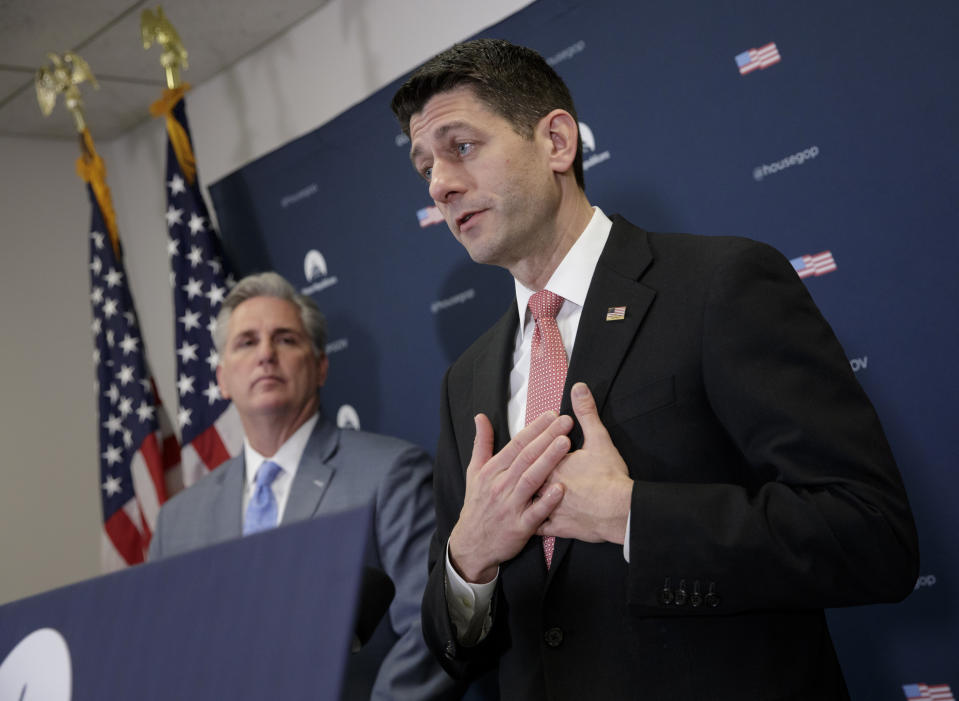Why you can't ignore healthy people in the health insurance debate
Health care reform would have been an important first step to achieving significant tax reform, according to Grover Norquist, president and founder of the conservative Americans for Tax Reform.
When asked why he thinks the Affordable Care Act (ACA) didn’t work, Norquist pointed to the individual mandate as one key reason—in addition to too many taxes on the middle class.
The mandate, which went into effect in January 2014, was enacted to encourage healthy and younger people to buy into the insurance system and penalizes individuals with no health care coverage.
“It was a massive screw young people,” Norquist said. “People under 40 are massively screwed and people over 50 get subsidized.”
Certainly, the individual mandate remains one of the ACA’s most politically-charged components (and survived a Supreme Court challenge in 2012).
However, Norquist’s perspective may clash with the underlying business model of insurance companies, according to industry analysts.

Why the insurance business needs healthy people
As Piper Jaffray analyst Sarah James explained, the addition of younger, healthy people in the insurance system helps to lower the overall costs.
“Insurance companies try to predict costs over large groups of people,” James said. “The bigger that is, and the more variance in expense levels and health, the lower the cost will be.”
James explained people should think about it like a basket of anything someone would buy. The basket would include some expensive items and some inexpensive items. The bigger and more diverse the basket is, the easier it is to predict the overall cost.
The money that young and healthy people pay into the insurance market via monthly premiums goes into the overall premium pool of everyone that has taken out that insurance. When someone makes a claim to pay for a procedure or medicine or a doctor’s visit, the money comes from the pool of policyholders’ premiums. In other words, that money from younger, healthier people—which largely goes untapped—is critical to keeping the pool funded and keeping costs low for the broader population.
Importantly, those young and healthy people have a safety net in case of a catastrophic medical event.
James believes that the penalty required for those opting out of insurance was too small, enabling a greater-than-expected number of people to forego coverage than desired, adding pressure to rising premiums.
Norquist disagrees
“You don’t need to do that,” he said. “What you can do is drop the cost of health care with more competition. That’s not the worldview Obama had. It is the worldview the Republicans have—competition, not mandates.”
The effectiveness of more competition in health care insurance, though, has been widely debated. Even large insurance companies like UnitedHealth (UNH), Aetna (AET), and Cigna (CI) don’t always control the costs—with doctors and hospitals as a big part of the equation.
The recent Republican proposal introduced age-adjusted tax credits to attract young people into the insurance market, but the accompanying higher charges for older people was met with concerns about costs and the potential to cause an insurance market “death spiral.”
Some have questioned whether tax breaks for the wealthiest or the repeal of Obamacare would cause a backlash from Trump’s base. After all, the president ran as a populist fighting for the “forgotten man” and is not seen as a traditional Republican in many ways.
Norquist said that would not be the case. “The tax increases that pay for Obamacare, many of them hit middle income people,” he said, adding that Trump’s policies respond to his base.
Nicole Sinclair is markets correspondent for Yahoo Finance.
Please also see:
Norquist: Health care reform must come before tax reform
Trump can’t take credit for post-election stock market rally
Investors haven’t been this worried about a market crash in 4 years
Gender diversity has been a winning investment strategy

